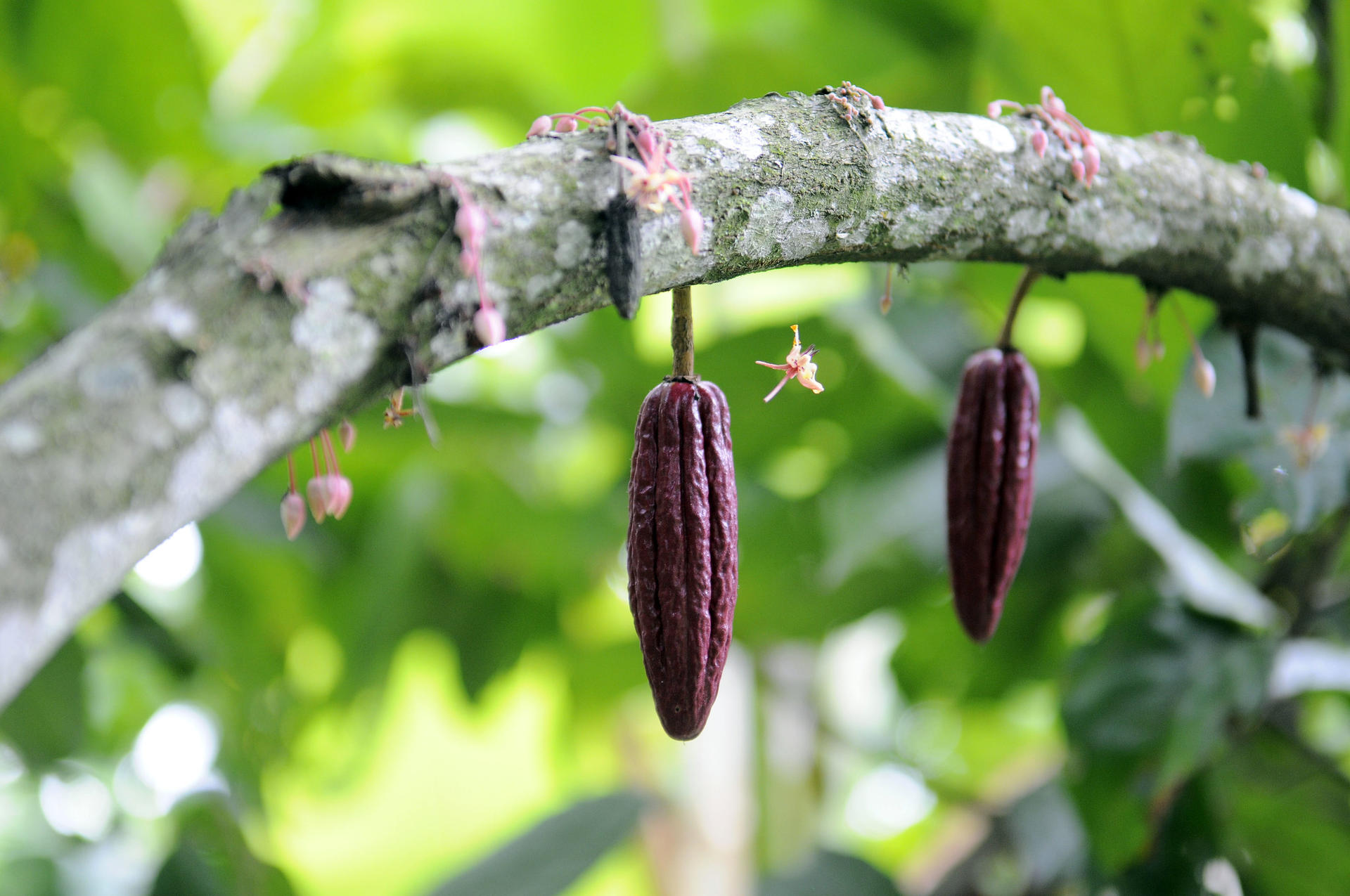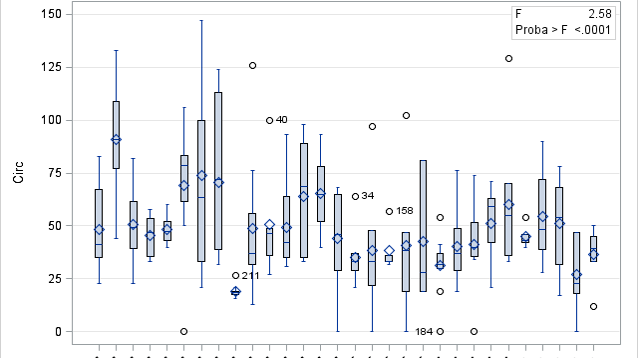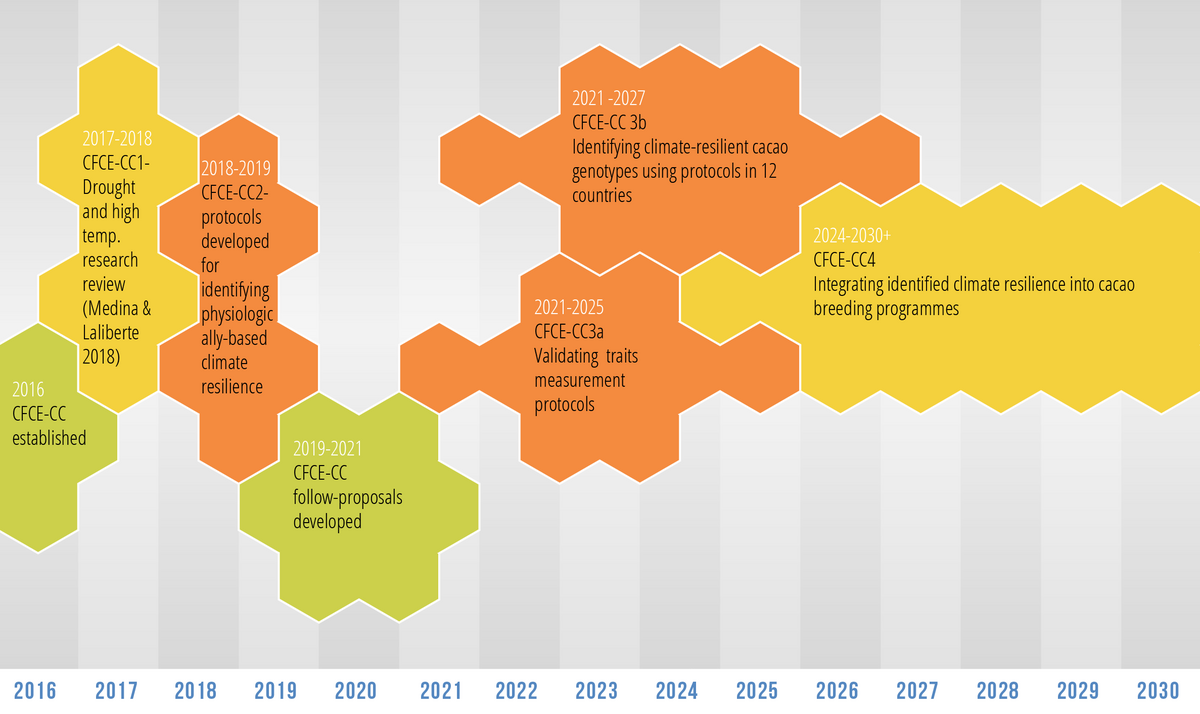The Collaborative Framework for the Cacao Evaluation Project

An integrated approach to improving yield efficiency and resilience in the face of climate change through better use of cacao genetic resources.
Food for the Platform: the Collaborative Framework for Cacao Evaluation Project
The Evolution of the Collaborative Framework for Cacao Evaluation on Climate Change (CFCE-CC)
Back in 2016, the ECA/CAOBISCO/FCC and WCF formulated the original objective of:
Developing a research programme to identify climate-resilient cacao materials that could be fast-tracked for use in breeding programmes.
In June 2017 the Collaborative Framework for Cacao Evaluation on Climate Change(CFCE-CC) was established following a workshop at the University of Reading. After the workshop, stakeholders agreed to support preliminary CFCE-CC short (18-month) projects in West Africa (ECA-CAOBISCO-FCC) and Latin America (WCF): An Integrated Approach to Improving Yield Efficiency and Resilience to Climate Change through Better Use of Cacao Genetic Resources. These projects have:
- Demonstrated proof-of-concept for identifying resilience among cocoa genotypes to abiotic stresses across agro-ecological zones,
- Established standardised protocols for physiological data collection and a web-based knowledge and information platform, and
- Identified sites for long-term studies in cocoa growing regions.
The CFCE-CC proposes a series of follow-on phases as depicted in the following diagram, to validate the physiological traits measurement protocols, use these to identify climate-resilient genotypes and then integrate these into cacao breeding programmes.
In line with the spirit to feed a cross-country and multidisciplinary approach, the Collaborative Framework for Cacao Evaluation on Climate Change (CFCE-CC) was established following a workshop at the University of Reading.
The main aim of the CFCE is to enhance sustainable cocoa production and the quality of cocoa grown by smallholders by optimizing the use of the genetic diversity in the development of improved, diverse and locally-adapted cocoa varieties through international collaboration, bringing together key players in the public and private sectors. The purpose of the initiative is to understand the value of cocoa diversity through research and characterisation and support global, regional and national evaluations.
So far, the project main outputs have been:
- Creating conditions for establishing a wide network of researchers combining skills and experiences from different countries and with diverse expressions of climate change linked to drought, heat and flooding.
- Providing evidence of interactions between field planting material and climate change to be able to elaborate further common strategies to improve cacao trees’ resilience and ensure sustainable yields considering their environmental variability and thinking in modelling climatic impacts.
- Identifying a new approach in cacao breeding that integrates innovative criteria and their related methods and tools to better understand cacao trees’ behaviour facing climate change challenges and to improve their resilience. This will include evaluating physiological traits associated with climate resilience.
- Articulating key elements for building an ambitious 5-10 year (or longer) proposal to extend and develop a global research framework for cacao integrating more partners and innovations.
Searching for Drought and Heat Tolerant Material through the CFCE
Time series data analyses/Longitudinal data analyses
Goal: to re-analyze existing breeding data and to cross with physical, climate data, so as to identify clones or progenies that interact with biotic factors relating to drought, heat and flooding.
Feasibility Studies
Goal: to assess establishing preliminary trials focusing on drought, heat and flooding tolerance, that will assess the feasibility linking breeding, physiological and climate data.

The Project Timeline

